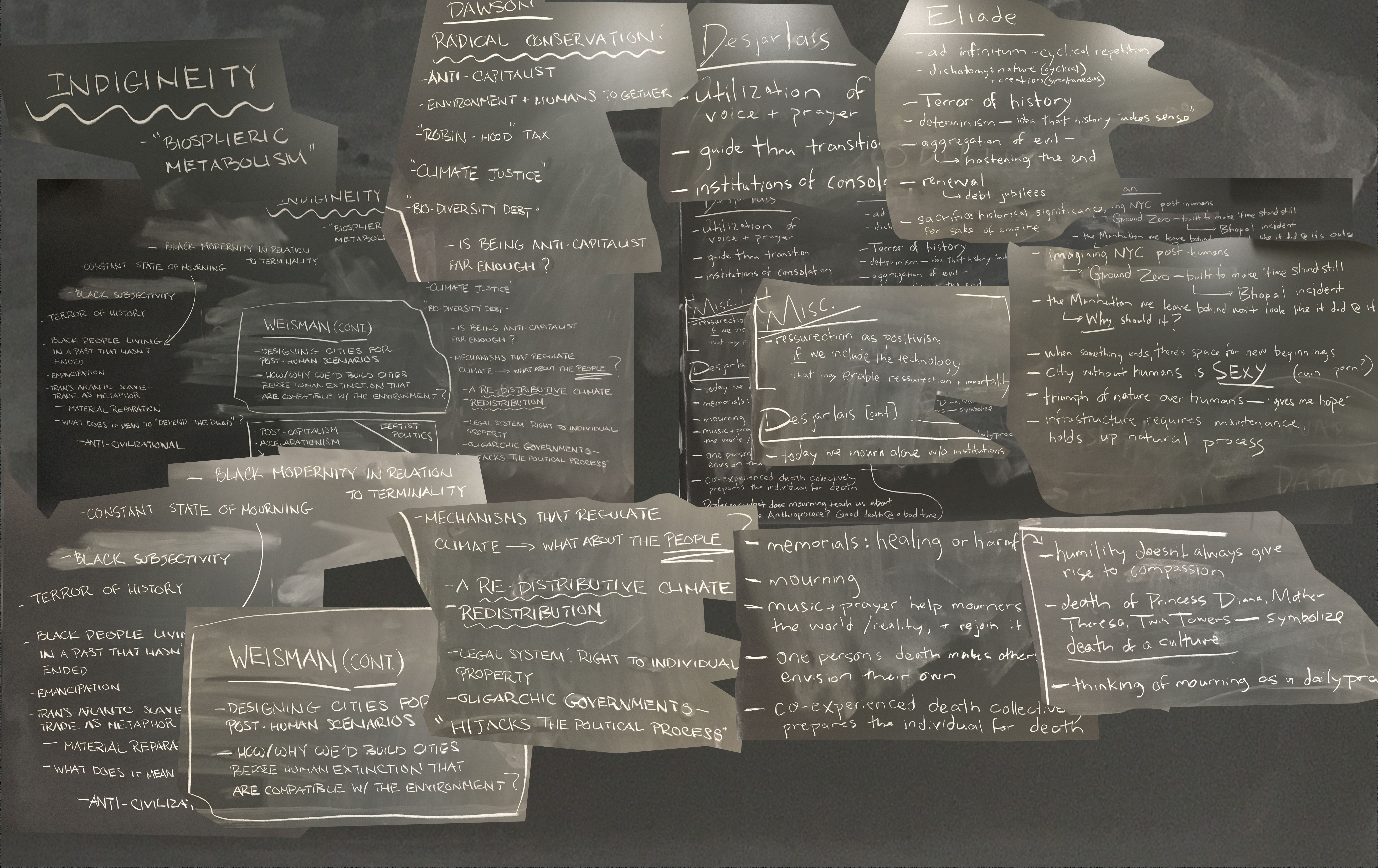Responding to a line of Kyle Whyte thinking, which frames contemporary environmental collapse as an experience of déjà vu for many Indigenous peoples who have endured centuries of colonial violence, Dr. Leonardo Figueroa Helland asserted, “it’s already been the end of times.” 500 years of the end of times. Such a framing begins to convey the devastation and continued repression of Indigenous communities and knowledges wrought by colonization and the sustained operation of settler states. Under such circumstances, it is immediately apparent that the preservation and promotion of Indigenous knowledges of existence within and relationship to broader environments and nonhuman beings is directly connected to expressions of Indigenous sovereignty. The connection between Indigenous sovereignty and environmental knowledges and practices emerged throughout our class’ conversation with Dr. Helland.
Efforts to incorporate Indigenous knowledges in the initiatives of dominant political institutions, however, have not often demonstrated an ability to address Indigenous sovereignty and environmental politics simultaneously. While it is clear that for Indigenous knowledges to truly be appreciated, the sovereignty of Indigenous peoples must be respected, it is also clear that there is a danger that Indigenous knowledges may be co-opted without benefiting Indigenous communities. Bearing in mind legacies of colonial violence and continued colonial occupation, such a danger may compel one to wonder whether there is space for expressions of Indigenous sovereignty and appreciation of Indigenous knowledges in dominant institutions, or whether it is imperative to seek more radical change. When asked about precisely this issue, Dr. Helland cited examples of the co-optation and appropriation of Indigenous knowledges as indicating that more productive mobilization may be directed outside of dominant institutions. The UN IPCC, for instance, perpetuated a perception of Indigenous peoples as stewards of forests and protectors of biodiversity, while its REDD initiative more often directed funding and power to settlers and large landowners, even incentivizing land grabs, rather than directly benefiting the Indigenous communities whose values it supposedly sought to promote. Such approaches are not only inadequate but ultimately harmful.

Recent Comments